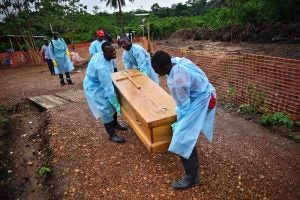
Image courtesy of NPR
Anthropologists play a key role in responding to public health emergencies, particularly infectious disease outbreaks. However, in the early stages of the recent Ebola outbreak in West Africa, many of the response teams sent by Doctors Without Borders, the World Health Organization (WHO), the U.S. military, etc. failed to include anthropologists. In the face of resistance to treatment and prevention measures (as well as distrust of the people implementing those measures) by the affected communities, anthropologists could have collaborated with public health professionals to ensure that efforts to contain the outbreak were both culturally sensitive and appropriate.
Fortunately, the international community has made a more concerted effort to include anthropologists as part of the teams that are formulating and implementing the response to the current Zika outbreak. Here are 3 examples of how anthropologists are contributing to these important efforts:
1. Influencing WHO’s Zika Strategic Response Plan
WHO has developed a series of response plans to guide the international response and joint actions against Zika virus infection, as well as its complications and consequences. In late June, WHO released the Zika Strategic Response Plan, which reflects “an approach that addresses the social, economic and environmental determinants of health and incorporates a human rights, equity and gender equality perspective“.
Anthropologists participated in the development of this plan, as evinced by the emphasis placed on ensuring community engagement in public health interventions, tailoring interventions to the local context of Zika-affected communities, etc. The plan, for example, acknowledges that local partnerships are essential to ensure communication platforms, messages and listening to community concerns are situated in the specific context and are culturally appropriate.
2. Participating in PAHO’s Zika Ethics Consultation
In early April, the Pan American Health Organization (PAHO) organized a consultation aimed at analyzing the ethical challenges related to the Zika outbreak, taking into account the lessons learned during the 2014 Ebola outbreak. During the consultation, participants developed Ethics Guidance on Key Issues Raised by the Outbreak, which identified the ethical duties associated with health care delivery, public health interventions, and research in the context of the outbreak.
Anthropologists, in addition to ethicists and public health experts, participated in the consultation, likely inserting the language calling for interventions that are sensitive to local cultures, practices, beliefs, and values. The guidance, for example, stresses that engagement with local populations and communities fosters public trust and helps ensure that messages about outbreak are sensitive to cultural differences and respectful of diversity.
3. Preparing Knowledge, Attitudes and Practice (KAP) Surveys
A Knowledge, Attitudes and Practice (KAP) survey is a representative study of a specific population to collect information on what is known, believed, and done in relation to a particular topic. In most KAP surveys, data are collected orally by an interviewer using a structured, standardized questionnaire.
Anthropologists supported WHO’s development of a KAP survey about Zika virus and its suspected complications, which is intended to serve as a means of rapidly obtaining valuable and insightful information in order to tailor interventions to better address people’s needs at community level. Before governments, non-profit organizations, and other actors administer the survey, they are able to adapt it for the specific country’s or community’s context.



